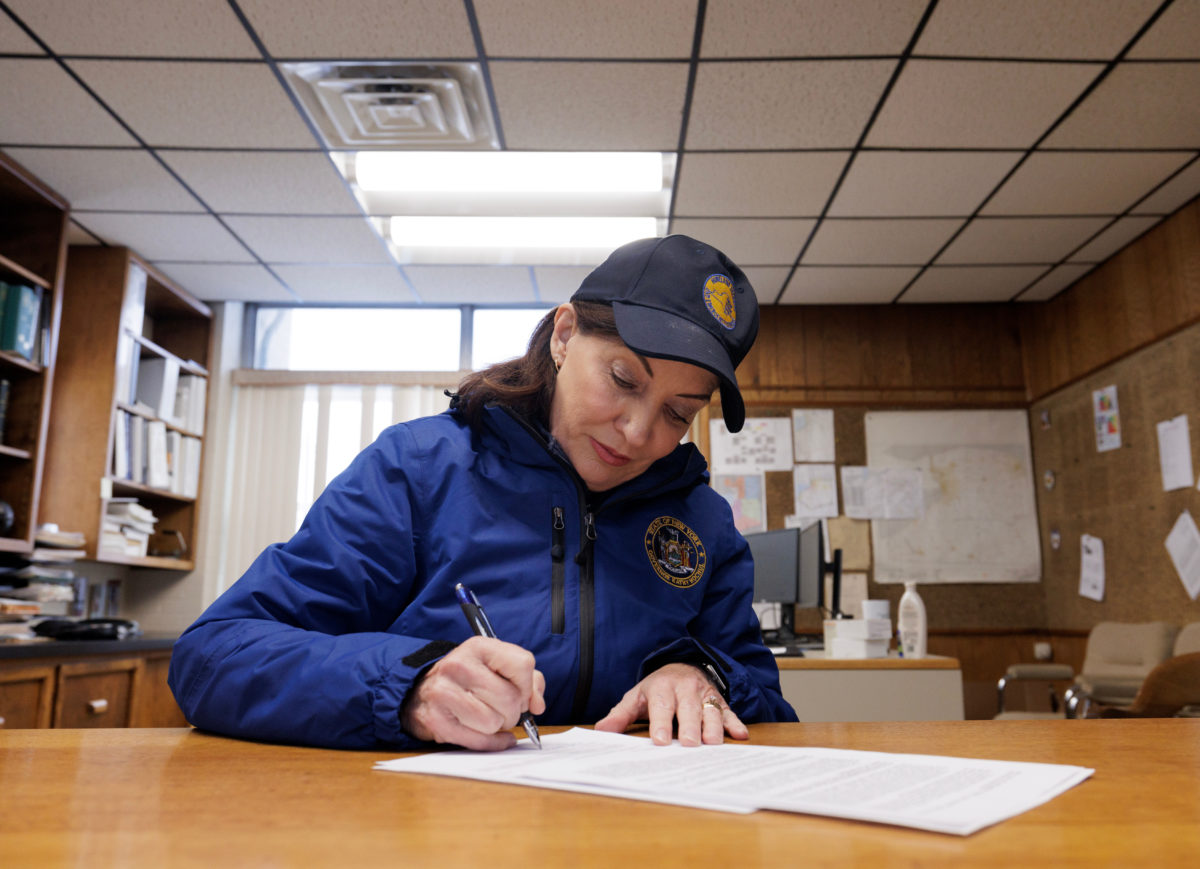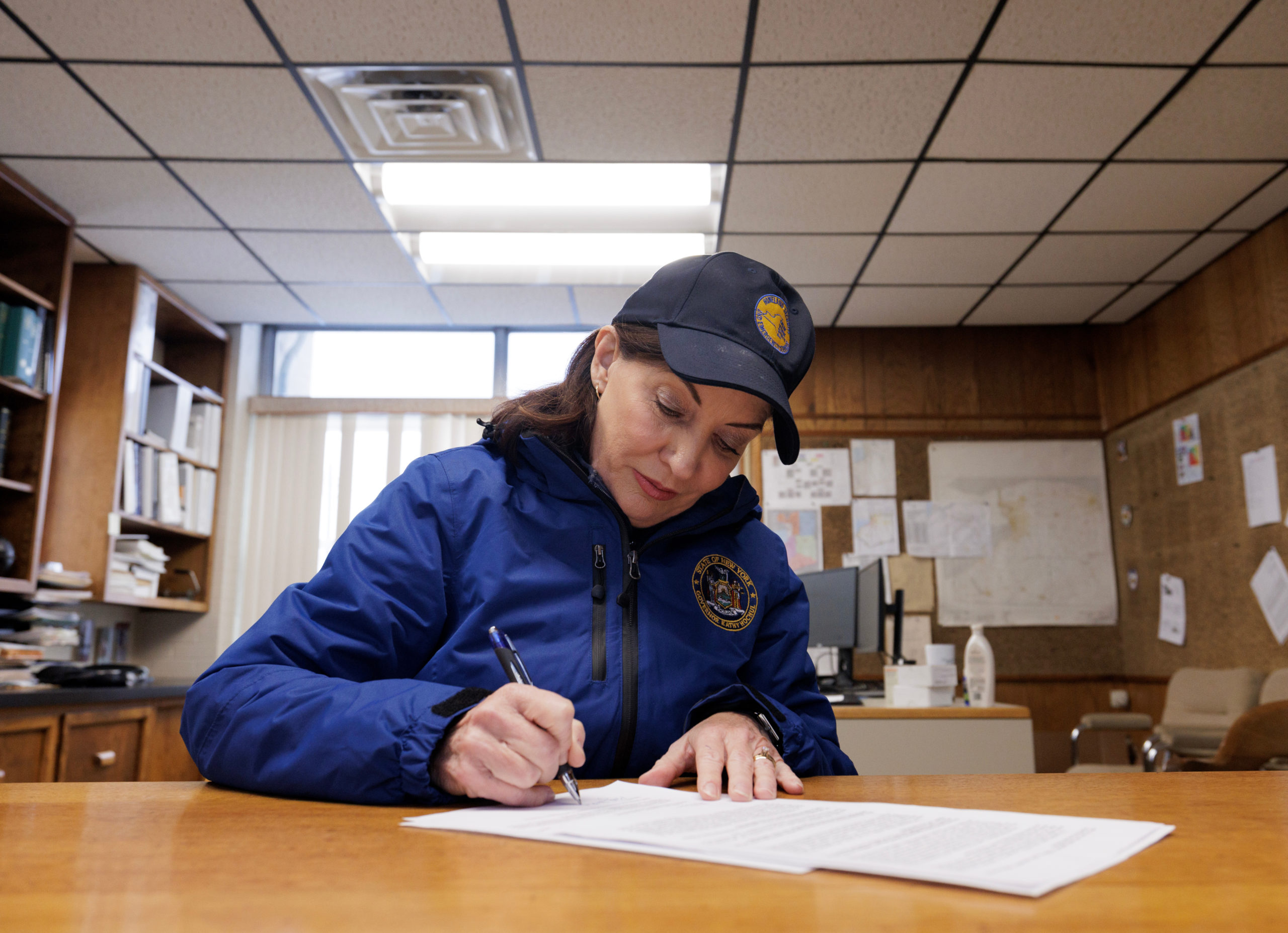New Legislation Introduces Speed Limiting Device Proposal in Brooklyn
By Oona Milliken | omilliken@queensledger.com
At the Brooklyn Heights intersection where Katherine Harris was hit and killed by a speeding driver in April of this year, Senator Andrew Gounardes and Assemblymember Emily Gallagher introduced legislation that would impose hindrances on drivers going more than five miles per hour above the speed limit. According to a press release, the bill would mimic the model of drunk driving legislation where convicted drivers must prove that they are sober by blowing into a device before they can start their car. Similarly, the legislation would only impact driver’s with six or more speeding tickets in one year.
In a statement, Assemblymember Gallagher said the bill is important to take precautionary measures to ensure that people like Katherine Harris do not have to die.
“As more Americans continue to die from motor vehicle crashes than in any other country in the world, we need to take proactive and common sense measures to reduce traffic violence,” Gallagher said. “Cars and trucks can act as weapons when used recklessly, and people who have repeatedly demonstrated they will endanger lives while operating vehicles should be limited in how fast they can drive.”
According to Kate Brockwehl, the survivor of a near fatal car crash and an advocate for the organization Families for Safe Streets, the legislation is a big step in reducing serious car accidents and deaths. Brockwehl said that many people in the United States think of traffic fatalities as just an unfortunate part of life, something unpreventable, and said she wants people to understand that serious car crashes can be avoided by infrastructure like this bill. According to Brockwehl, she was hit by a speeding car as a pedestrian in 2017, and spent a year and a half in recovery from the incident.
‘I’m a huge fan of the bill,” Brockwehl said. “To me, this bill is incredibly straightforward. It doesn’t remove your keys, it doesn’t affect your ability to drive, you can go all the places you need to. It says you can’t go more than ten [sic] miles over the speed limit. You don’t get a ticket until that point.”
According to Brockwehl, bills such as the one that Gounardes and Gallagher are putting forward were nonexistent in the United States until recently because the technology to safely slow down cars did not exist in American markets, though some form of speed reduction technology has been used in the European Union on all new cars since 2022, according to Autoweek Magazine.
Under the new legislation put forward by Gounardes and Gallagher, offending drivers that try to go more than five miles will have their speed reduced by intelligent speed assistance . The bill has a precedent in an ISA pilot program installed on New York City fleet vehicles, in which 99 percent of vehicles successfully remained within the speed limit parameters.
Brockwehl said that the legislation is just one step in fighting traffic violence, and said that Families for Safe Streets is also pushing to introduce alternative street configurations that would slow down drivers, including something called a “road diet” which would add more room for bicycle paths and turning lanes. Brockwehl said that her ultimate goal is for fatal and near fatal traffic incidents to be a thing of the past.
“There’s nothing preventing my being killed next time, or like someone I love, unless I never go outside again in my life,” Brockwehl said. “I think we’re just so incredibly used to [traffic deaths] in the United States to the point that it affects so many more people than people who are involved in Families for Safe Streets, but I think people don’t realize it yet.”
In a statement, Councilmember Lincoln Restler said that, if passed, the legislation will ultimately lead to safer and more habitable streets.
“Too many New Yorkers are victims of traffic violence due to reckless drivers,” said Restler. “I’m excited to support Senator Gounardes’ and Assembly Member Gallagher’s common sense legislation that will increase accountability on the most dangerous drivers, make our neighborhoods safer, and ultimately save lives.”








